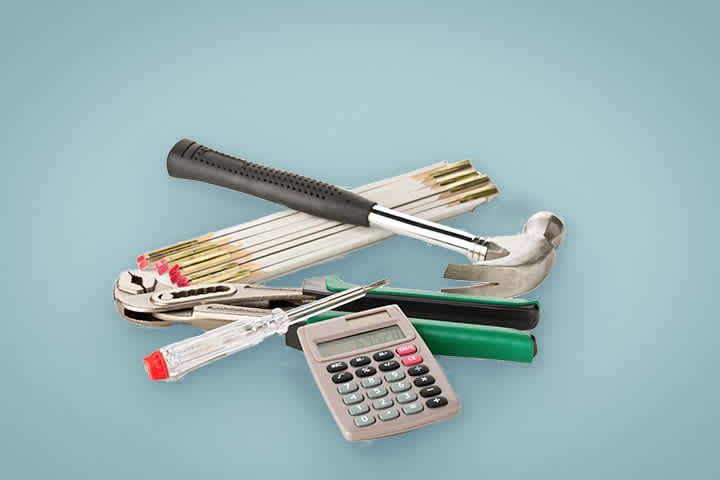How to include your grandchildren in your inheritance planning: 8 questions and answers
Keytrade Bank
keytradebank.be
October 13, 2021
9 minutes to read
We are all living longer and longer. That is why we see more and more Belgians inheriting from their parents at an age when they actually "no longer need" this inheritance.
An estate can therefore sometimes be of much greater benefit to the grandchildren, who still need to launch themselves in life (buying or renovating a home, expanding their family, starting up a business, etc.).
So just drop EUR 50,000 into your grandchild’s savings account? That is not generally a good move. It is best to first stop and consider whether you wish to treat all your grandchildren strictly equally, and whether you wish to give something as a gift or leave it in your will. Of course, the tax situation also has an impact.
Since inheritance and gift tax are very complex, in this article we will only look at transferring movable assets (cash and investments) from grandparents to grandchildren. We are also assuming that your child(ren) are still alive. Everyone's situation is unique. Before you make a decision, we strongly recommended that you check your plans with your notary or a specialist in this field, and of course also with your grandchildren’s parents or guardian.
1. What if you don't do anything and then you die?
Grandchildren are not automatically entitled to (any part of) your inheritance if you die. For as long as your children are still alive, everything goes to the children. If you do not do any planning, your grandchildren will not receive anything.
If you die and you have not made any plans, your heirs will have to pay inheritance tax. In the Flemish Region, rates can rise to 27% for direct descendants and in the Walloon Region and Brussels-Capital Region to 30%.
It may therefore be more attractive from a tax point of view to make gifts to your (grand)children during your lifetime. Please note that whatever you gift them is then permanently removed from your assets. You cannot revoke a gift, unless there are very serious circumstances (such as attempted murder, for example).
2. Can your children pass on your inheritance to your grandchildren?
This is indeed possible. Your children can reject your estate, for example, in the event that you have not planned anything. The result is that your grandchildren then replace them as your legal heirs. The major disadvantage is that your child cannot be selective about this. He or she has to reject your entire inheritance; a partial rejection is not possible. This is not always desirable in practice.
In Flanders, however, partially skipping a generation is possible via an onward transfer. Within a year, your child can pass on the inheritance, on which inheritance tax has already been paid, to your grandchildren. Provided that certain conditions are met, your child will not have to pay any gift tax nor your grandchildren any inheritance tax. In addition, the movable assets that are gifted do not have to be the same as the movable assets they inherited and on which the inheritance tax was paid. The emphasis is more on the value of the movable assets that were passed on. Wallonia also accepts onward transfers, but the amount must be transferred within 90 days of acceptance. Brussels does not permit this system.
3. How much can you gift or leave to your grandchildren?
You can give half of the value of your assets to your grandchildren through your will or as a gift. The other half of your assets (the reserve) is automatically assigned to your children (each of them receives an equal part of this half). To simplify it a bit, these assets comprise the entire estate of the deceased at the time of their death, plus all the gifts that he or she has made during his or her life. Please note that there are exceptions: as a grandparent, you cannot simply gift your family home to the grandchildren, for example. If we assume that your assets consist entirely of cash and investments, then you can dispose freely of half of those assets. Half of them can be distributed to your grandchildren as you wish, in whatever proportions you want.
4. If your grandchild is legally an adult: How can you make a gift?
By bank transfer
You transfer the money and investments to an account in the name of your grandchild. You will need to prepare an accompanying document (known as a pacte adjoint) that confirms that the transfer is a gift. You need to send this document by registered post. Your grandchild should keep this in a sealed envelope. If the tax authorities start asking questions, the document can be opened in the presence of the tax authorities. Make sure that you do not include the word "gift" in the message when making the transfer.You do not have to pay gift tax on a bank transfer gift. Please note: if you die within 3 years of making the gift, your grandchild will still have to pay inheritance tax. Timing is therefore important, hence the importance of the registered letter.A deed with a notary
For the donation of certain investments, such as term deposit accounts and Branch 21 and Branch 23 savings insurance policies, you must always go to a notary. If you also wish to attach conditions to the gift (e.g. the grandchild may have the investments, but you still want to receive the dividends), you need to go to a notary. On a gift via a notary, you pay 3% gift tax in Flanders and Brussels (3.3% in Wallonia). However, your grandchild will never pay inheritance tax on it, not even if you die within 3 years.
5. If your grandchild is a minor: How can you make a gift?
Children under the age of 18 cannot accept a gift. Their parents or their guardian (with the approval of a justice of the peace) can do so. The money and the investments will then be handed over when the child comes of age (unless you instruct otherwise in a notarial deed of gift).
Suppose your 6-year-old grandchild is a real little treasure. But what if this treasure, at the age of 17, goes off the rails and you wish you had not made that gift...? For reasons like this, you may want to include conditions in the notarial deed of gift. Such as:
- Retention of usufruct: this means you are entitled to the dividends and interest. You can also include in the deed that only you have the right to manage the portfolio, to (sell) investments, etc.
- A conditional gift: you can also impose a certain obligation. For example, your grandchild will have to pay you a certain amount every 6 months as long as you are still alive.
- There are also other techniques to retain control. Your notary can explain them in detail.
6. You don't want to make a gift (yet), but do want to leave something to your grandchildren?
Then a will, life insurance or third-party beneficiary clause is the solution. The major advantage is that you retain control while you are still alive. A will, life insurance or third-party beneficiary clause can be amended or even revoked completely at any time. However, remember that you can allocate no more than half of your assets to your grandchildren. And that your grandchildren will probably pay inheritance tax (on bequests of EUR 12,500 or less, grandchildren do not pay inheritance tax in Flanders. In Brussels and Wallonia, there is an exemption on the first tranche of EUR 15,000 and EUR 12,500 respectively).
In a will
You can also choose to leave the bare ownership to your grandchild and the usufruct to your child. In this way, you ensure that your child can keep an eye on the situation and that any dividends or interest are paid to them.With a third-party beneficiary clause
If you opt for a third-party beneficiary clause, you open a savings account or investment account in your own name, but you declare that the assets are to be released either upon your death or on a date of your choice, and are to go to your grandchild.Through life insurance
In this case, you take out a life insurance policy and designate your grandchild as the beneficiary. As with a third-party beneficiary clause, you can set a date of your choice.
7. You have made gifts to your grandchildren in your will, but what if you die while they are still minors?
Children under the age of 18 cannot receive a legacy. This can only be received by their parents or their guardian (with the approval of a justice of the peace). The money or investments you leave will initially go into a blocked account. It will not be unblocked until your grandchild reaches the age of majority. For example, you may have left some investments to your grandchild. Your child can reinvest this capital, provided that the justice of the peace approves.
8. Can you open a savings or investment account in the name of a grandchild?
No, this is not possible – no matter whether your grandchildren are minors or adults. Of course, you can transfer money or securities to an existing account in the name of the grandchild.


